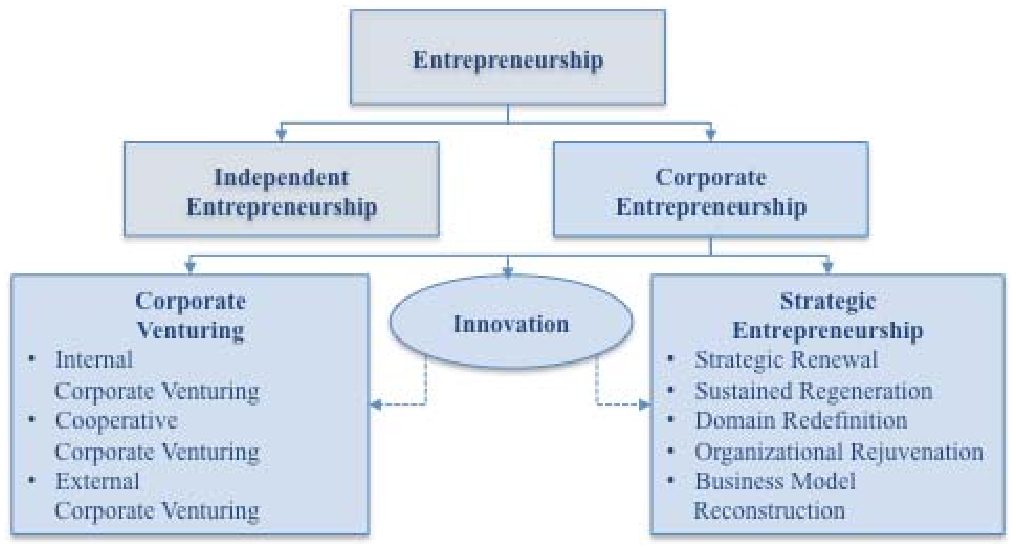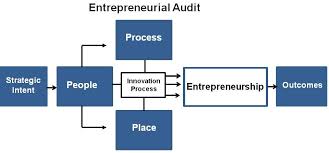
- •Г. Д. Малик
- •Information Challenges
- •Contents
- •Information Age Text 1 understanding data, information, knowledge and their interrelationships
- •Text 2 how to build wisdom and prosper in an ‘information age’
- •5 Myths About the 'Information Age'
- •Brief Overview of Document Management
- •Introduction
- •Text 5 Understanding documents and documentation
- •Typical digital and traditional libraries compared
- •Text 6 The Transformation of Document Storage into Records Management
- •Text 7 problems and challenges of the information age
- •Industrial vs. Information Age
- •Text 8 Hidden-Information Agency
- •Introduction
- •Information Professionals Text 1 The Role of Information Professionals in Global Economic Crisis
- •Introduction: the causes and evolution of the global economic crisis
- •Information Professionals in the Information Age:
- •Vital Skills and Competencies
- •Intellectual Capital And Intangible Assets
- •Text 3 Entrepreneurship Education and Information Professionals
- •Text 4 The Information Professional facing the impact of Search Technology
- •Information Professional in news organizations
- •Knowledge Experts in the Intelligent Organization
- •Text 5 The Changing Role of the Information Professional
- •Implications for Education
- •Text 6 Challenges in Educating 21st-Century Information Professionals
- •Information Professionals in the Corporate World
- •Text 8 The Future of the Information Professional
- •Text 1 The Freedom of Expression and Information
- •Text 2 mass media and its influence on society
- •Text 3 pros and cons of mass media
- •Pros and Cons of Different Types of Media
- •Text 4 seven myths about media effects
- •Classification of Media
- •Text 5 children and the media
- •Print Materials
- •Television
- •Text 6 Ten Reasons to Advertise in a Newspaper
- •Immediate
- •Pros and Cons of Advertising in Newspapers
- •Text 7
- •Interactive elements and customization
- •Text 8 are newspapers dying? yes or no?
- •Newspapers Are Dead
- •No They Aren’t – Not Yet, Anyway
- •Internet Text 1
- •Internet as an important element of the information society and e-business development
- •Text 2 The Internet Revolution: It came. It went. It's here.
- •Text 3 Consumer Benefit from Use of the Internet
- •Text 4 The Educational Advantages of Using Internet
- •Text 5 From media literacy to digital skills
- •Text 6 Social Network Sites
- •Text 7 History of e-books
- •Text 8 The future of the Internet is wired into the human brain
- •It’s all in your head
- •Text 1 Censorship, Violence & Press Freedom
- •Text 2 Censoring and Destroying Information in the Information Age
- •Text 3 Pros and Cons of CenSorship
- •Text 4 Media Censorship: Why is Censorship Good
- •Internet / Magazines
- •Text 5 Censorship and the Arts
- •Text 6 Data driven futures - censorship takes new forms
- •Freedom of speech and censorship - project
- •Surveillance and censorship intertwined
- •Who controls the internet?
- •Paradoxes of democracy
- •Big media - concentration, globalization and user data
- •Media redefined
- •Big data
- •Information regime and respect for the user
- •Text 7 Kids' Book Censorship: The Who and Why
- •Challenges Are Ongoing
- •Why Do People Want to Ban Books?
- •The First Amendment to the u.S. Constitution
- •Kids Fight Book Banning Through kidSpeak
- •Parents Against Bad Books in Schools
- •What Do You Think?
- •Why do people want to ban books?
- •Text 8 Why Not Censor?
- •Text 1 a brief history of pr
- •Text 2 the important role of public relations
- •10 Principles of Public Relations
- •Text 4 ethical public relations: not an oxymoron
- •Text 5 public relations across cultures: building international communication bridges
- •Text 6 pr and blogging – how to think about it?
- •Text 7 how to choose between pr and advertising
- •Text 8 how to run ethically sound pr campaigns
- •Text 1 deal or no deal? resolving conflict through negotiation
- •Importance of good communication skills in negotiation
- •Text 3 a Buyers’ and Sellers’ Guide to Multiple Offer Negotiations
- •Information for Buyers
- •Information for Sellers
- •Information for Buyers and Sellers
- •Text 4 Deception in Negotiations: The Role of Emotions
- •Text 5 Differences in Business Negotiations between Different Cultures
- •Text 6 negotiation conflict styles
- •When to use?
- •What's the Danger?
- •Self Defense
- •When to use?
- •What's the Danger?
- •Self Defense
- •Avoid (I Lose - You Lose)
- •When to use?
- •What's the Danger?
- •Self Defense
- •Compromise (I Lose / Win Some - You Lose / Win Some)
- •When to use?
- •What's the Danger?
- •Self Defense
- •When to use?
- •What's the Danger?
- •Self Defense
- •Text 7
- •Text 8 ten tips for negotiating in 2013
- •Information Challenges
- •38 Karhula p. Data driven futures - censorship takes new forms / p. Kashula. – Available at: http://www.Ifla.Org/publications/data-driven-futures-censorship-takes-new-forms.
Text 3 Entrepreneurship Education and Information Professionals
By H.N. Eke U. Igwesi D.I. Orji 11
In the world of business today, entrepreneurship revolution has taken hold across the globe. Kuratko (2005) stated that entrepreneurship is more than the mere creation of business.
Entrepreneurship is a dynamic process of vision, change, and creation. It requires an application of energy and passion towards the creation and implementation of new ideas and creative solutions. Essential ingredients include the willingness to take calculated risks-in terms of time, equity, or career; the ability to formulate an effective venture team; the creative skill to marshal needed resources; and fundamental skill of building solid business plan; and finally, the vision to recognize opportunity where others see chaos, contradiction, and confusion. (Kuratko & Hodgetts, 2004, p. 30).
Entrepreneurship education seeks to provide students with the knowledge, skills and motivation to encourage entrepreneurial success in a variety of settings. It focuses o realization of opportunity, where management education is focused on the best way to operate existing hierarchies.
The role of information professionals in aiding entrepreneurship education cannot be over-emphasized, especially now that researchers are continually striving to learn more about the entire entrepreneurial process to better understand the driving forces within entrepreneurs (Bull & Willard, 1993; Bygrave & Hofer, 1991; Gartner, 2001). The major function of information professionals in entrepreneurship education is information provision. They act as information suppliers to entrepreneurs who wish to widen their horizon in relation to their business endeavors. Kuratko (2005) stated that three major sources of information supply the data related to the entrepreneurial process or perspective, namely: research- based source, direct observation of practicing entrepreneurs, and speeches and presentations (including seminars) by practicing entrepreneurs.
It therefore, becomes the duty of information professionals to provide these research-based sources both in print and non-print format to potential and prospective entrepreneurs. Examples of these resources are: Academic journals, textbooks on entrepreneurship, Books about entrepreneurship, biographies or autobiographies or entrepreneurs, compendiums about entrepreneurs, news periodicals, venture periodicals, newsletters, proceedings of conferences, government publications. As the name sounds, an information professional is someone who specializes in information collection, organization, storage and dissemination of such information. The stated tasks can be done free of charge or by fee, depending on the situation surround ding the information pursuit. For instance in public, special or academic library, an information professional provides information to users free of charge, but is paid indirectly for his services by the government or the employer in charge. In another case, an information professional is paid directly by the person receiving the services. This is done in business centres, whereby a person pays for services rendered immediately. In this case, the information professional becomes an information broker. Warner () refers to these set of people as information entrepreneurs. Warner further stated that:
They operate enterprises that charge fees for information-related services and products; develop specialized libraries from scratch; clip newspapers; compile directories; consult on everything from computers to construction. They create archives and software, develop vocabularies, do chores (moving, bar coding, shelf reading), help libraries write RFPS. They index manuals and books and documents, they organize conferences and prepare alerting services, publish books and newsletters, retrive documents, search online, substitute for libraries who have babies. They teach. They travel as couriers. They write abstracts, they write computer instruction manuals (p.279)
All these efforts put together bring about individual and national development in the sense that information, being a crucial factor in national development, is acquired by entrepreneurs who gain access to these information by fee or otherwise. According to Noruzi (2006), “in the 21st century governments must recognize this need for information use and literacy as a means of development”. Hence, information professionals play a key role in national development. This is owing to the fact that they provide useful information in economic, cultural, social and political contexts.
Assignments
What does the term ‘entrepreneurship’ mean?
What are essential ingredients of the entrepreneurship? Make use of the prompts below.

F ig.
2.4 Entrepreneurship Ingridients
ig.
2.4 Entrepreneurship Ingridients
Fig. 2.5 Enterpreneurial Audit
What does the term ‘entrepreneurship education’ mean?
Can you explain the difference between entrepreneurship education and management education?
Name the major function of information professionals in entrepreneurship education. Do you agree with it? Why?
What does the term ‘information provision’ mean? Give your own example.
What are the main duties of the information professional?
When does information professional become information broker?
Give your own examples of providing information by information professionals free of charge and by fee?
Summarize the text.
